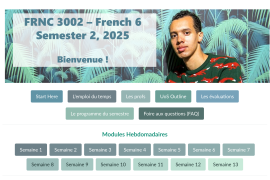What does this principle mean?
Engagement is widely shown to increase student outcomes and motivation, so what we do when we teach has a significant impact on student learning. All disciplines have core concepts and competencies that students must develop – if we use approaches that foster student engagement, our graduates will have better chances of achieving disciplinary expertise.
Approaches
- Take advantage of the distinctive capabilities of available in-person, synchronous online, and asynchronous online formats for effective interactive and collaborative learning activities, recognising the particular value of in-person formats for undergraduate and professional entry graduate programs, and flexible online and intensive formats for post-experience postgraduate programs.
- Use active learning approaches that are proven to increase engagement and student learning outcomes
- Increasing authenticity increases student motivation. In higher education, this might include a focus on professional and disciplinary contexts, including recognising that students are an integral part of knowledge generation.
Examples
- Intersperse traditional ‘delivery’ with activities where students can test, apply, and challenge their understanding and skills
- Recognise that student difference is the rule rather than the exception using the Universal Design for Learning approach to cater for student diversity
- Use case studies, artefacts, practices, research outcomes, and problems drawn from lived experiences and/or authentic disciplinary/professional contexts, highlighting the changing nature of knowledge and the teachers’ and students’ role in this
- Consider introducing activities where students collaboratively build their own knowledge, through facilitated discussion with their peers, problem-based approaches and online research
- Include the occasional plenary or guest lecture which serve to add diversity, disciplinary or professional authenticity





